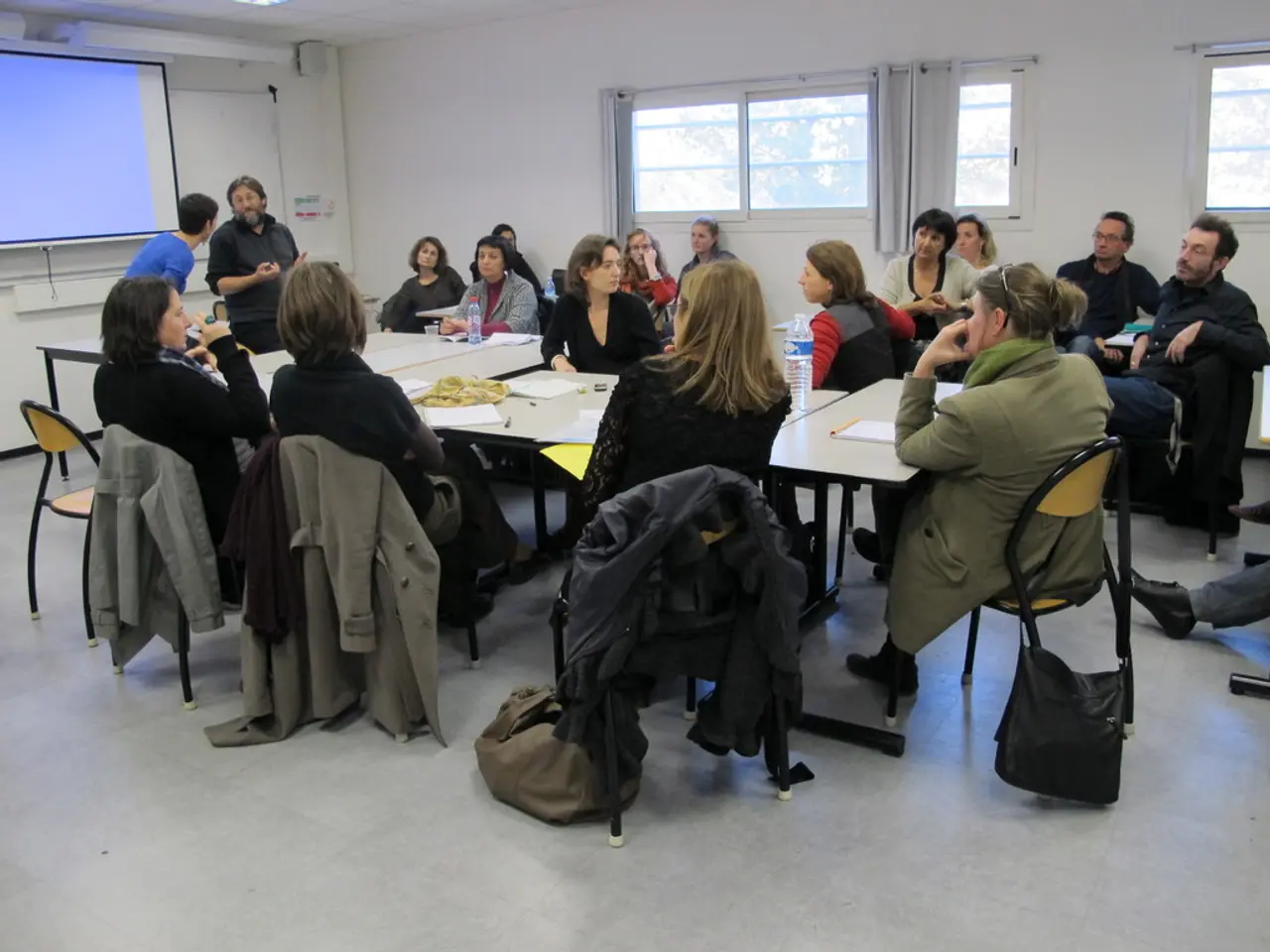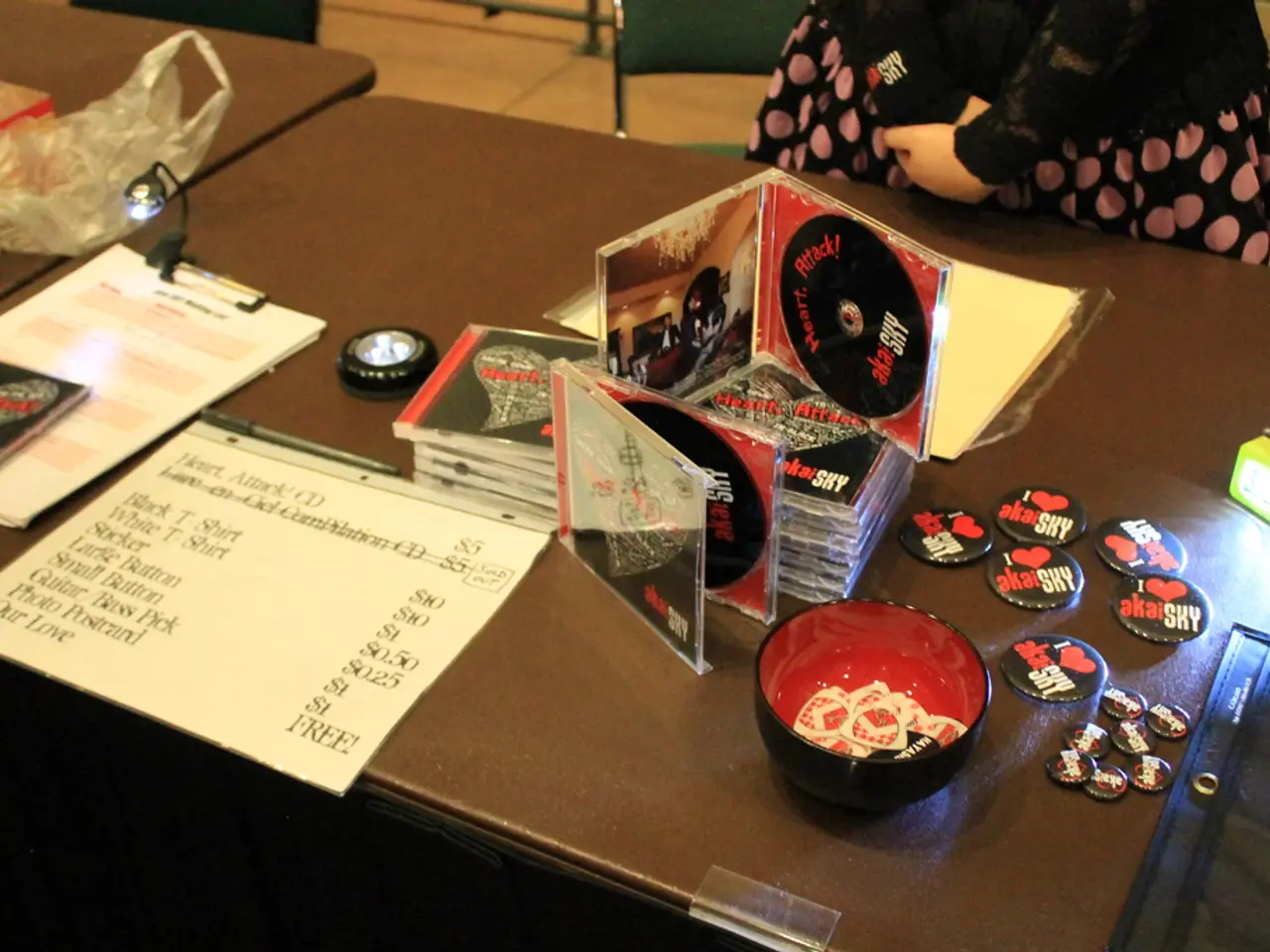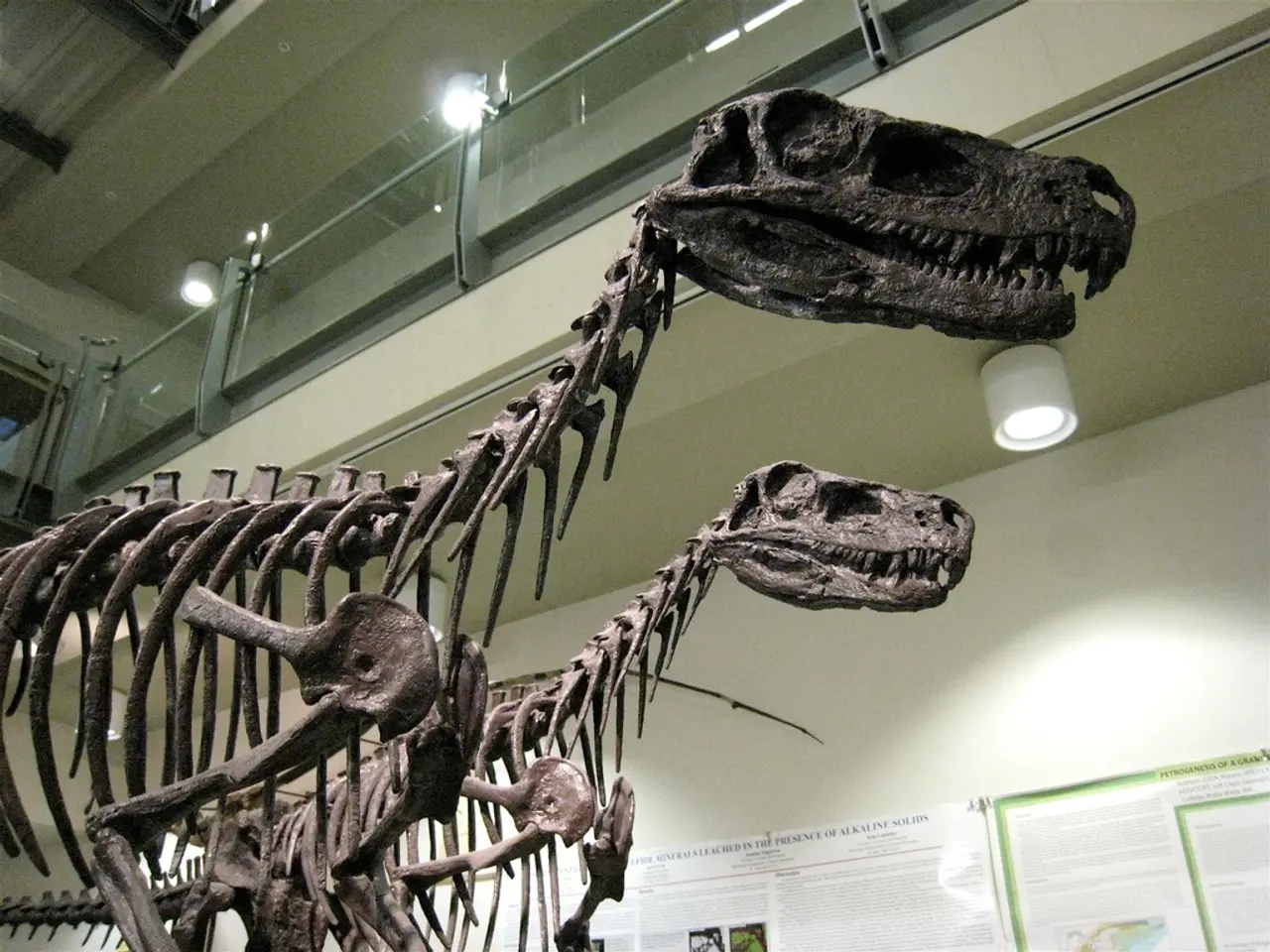Mainstream media is witnessing a decline in political power
In a recent study analysing 115,000 posts by current Bundestag members on social media platforms between December 16, 2024, and February 23, 2025, Jens Schmitz, CEO of Pressrelations, has highlighted the close link between a party's success and its use of social media.
The new composition of the Bundestag has seen a potential shift in social media visibility among German parties, with the Alternative for Germany (AfD) notably gaining a strong presence and engagement, particularly on the platform X (formerly Twitter). The AfD's co-leader, Alice Weidel, has seen a dramatic rise in average daily views on social media from about 230,000 to 2.2 million due to engagement from influential figures such as Elon Musk, who has boosted AfD's visibility significantly.
The AfD's increased social media visibility can be attributed to its high posting frequency and strategic amplification. While exact comparative posting frequency numbers for all parties are not detailed in the search results, the AfD is implied to be highly active on social media platforms, leveraging Musk’s platform to amplify their messaging and reach. This high posting frequency and controversial, inflammatory content help maintain high visibility.
Traditional major parties such as the CDU-CSU coalition have retained a strong parliamentary presence, but no direct social media posting frequency data is given for them in the results. The SPD and Greens, while historically significant, have less mention regarding social media activity or visibility shifts in the provided data.
The AfD’s social media presence is characterised by nationalist and anti-immigrant themes, aligning with far-right, extremist views under scrutiny by Germany’s intelligence services. Despite being classified as a right-wing extremist organisation (classification currently suspended), the party’s social media strategy capitalises on controversy and high engagement tactics to maximise reach.
Alternative media outlets like "Nius" and "Junge Freiheit" are gaining influence with the new composition of the Bundestag. The posting frequency and the type of posts shared on Tiktok, Facebook, Instagram, Threads, Bluesky, Telegram, and YouTube were decisive in the study.
The Left party has the second-highest number of posts per seat in the Bundestag and could increase its visibility with additional seats, having 12% of all posts in the new Bundestag. The AfD, despite having fewer seats, could have 39% of all posts in the new Bundestag, far ahead of the CDU/CSU.
The "Bild" newspaper could become the most shared news site among new Bundestag members, with "Nius" potentially rising to third place in terms of social media shares after "Bild" and "Spiegel". These traditional economic media are no longer represented in the top ten most shared media. The "Spiegel" could potentially be overtaken as the most shared news site by the "Bild" newspaper among new Bundestag members.
Parties that shared disproportionately more posts relative to their size and successfully used media that reflect their own political views were the most successful. The SPD is predicted to lose even more visibility in the new Bundestag, with only about 13% of all social media posts. The Greens, who are losing influence, also have 12% of all posts in the new Bundestag.
Traditional economic media like "Handelsblatt" and "FAZ" are losing reach without their core target group, the FDP. This analysis suggests a significant shift in media reach due to the new seat distribution in the Bundestag, with the AfD members potentially responsible for 40% of all Social Media Posts from the Bundestag.
- The increase in the AfD's social media visibility has raised concerns about policy-and-legislation, as their nationalist and anti-immigrant themes align with far-right, extremist views that Germany's intelligence services are scrutinizing.
- The study on social media activity in the new Bundestag has highlighted the importance of general-news outlets in shaping political discourse, with the "Bild" newspaper potentially becoming the most shared news site among new Bundestag members, and "Nius" potentially rising to third place.







